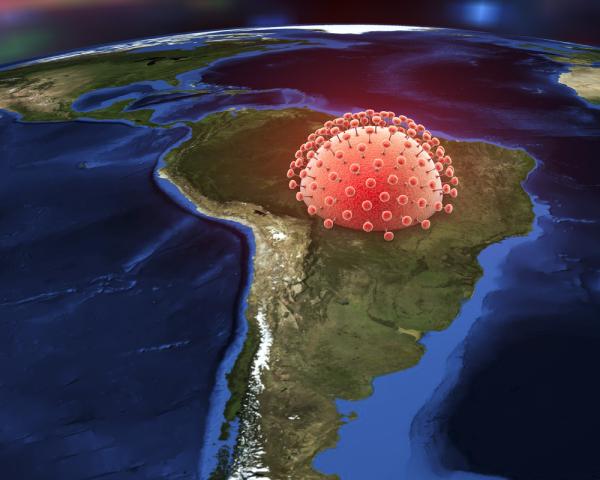Remember Amir Attaran?
Of course you don't.
That said, perhaps we should take a moment to reflect on the Canadian professor's dire, pre-Olympic predictions about worldwide Zika virus transmission, and compare them to what actually occurred in the aftermath of the Summer Games in Brazil.
Which, so far, is nothing. Zero. Not a single case.
But more importantly, it might also be wise to consider that while Dr. Attaran was completely wrong in his assessment -- which, in some circles, could possibly paint him as an academic hysteric -- there are reasons to believe that his clarion call turned out to be notably, if inadvertently, beneficial to global health.
Consider the possibility that his warning could have actually contributed to greater Zika awareness in Rio de Janeiro and encouraged more vigilant prevention methods among visitors. And that, in turn, could have helped tamp down a possible global epidemic from taking hold, and then taking flight, as 500,000 visitors and athletes jetted home across the globe.
If this is now sounding familiar, you'll recall that Dr. Attaran, a biologist and lawyer on the faculty of both Medicine, and Law, at the University of Ottawa, cautioned the world back in May that Zika's rising prominence precisely where the Olympics was being staged could create a "global health disaster." And while discussions of Zika and its unknown threat potential were becoming increasingly scary, his concerns were amplified by the mainstream media, in the U.S. and around the world.

Three months prior to the Games, in an article frighteningly titled -- get this -- "Why Public Health Concerns for Global Spread of Zika Virus Means That Rio de Janeiro's 2016 Olympic Games Must Not Proceed" and published in the Harvard Public Health Review, Dr. Attaran sounded more than a bit hyperbolic.
"All it takes is one infected traveler: indeed phylogenetic [evolution of group of organisms] and molecular clock analyses establish that Brazil’s cataclysmic outbreak stems from a single viral introduction event likely between May and December 2013," he wrote, while calling for the Games to be delayed or relocated -- both wildly unrealistic suggestions at that late date. "A few viral introductions of that kind, in a few countries, or maybe continents, would make a full-blown global health disaster."
Well, that of course did not happen. As has been widely reported, the World Health Organization recently stated that, "From the reports WHO received from [Brazilian] national health authorities, there have so far been no laboratory confirmed cases of Zika virus in anyone associated with the Olympics."
So the question that emerges, now that the spotlight in no longer trained on Rio, is: Could Dr. Attaran have been successful in his overall mission to defend the public's health -- while being wildly wrong?
It wasn't the way he intended to help, but it's plausible the answer is yes, and here's why.
As we reported in June, roughly two months before start of the Games on Aug. 5, with half a million Rio visitors during those two weeks, statistically speaking 16 would be infected with the Zika virus. However, the potential existed for the health risks to grow from there.
"What the end result of those 16 new cases will be is even more difficult to predict," wrote Juliana LeMieux, ACSH's Senior Fellow in Molecular Biology. "Each of those people will travel back to their country and may, or may not, pass it on to others, depending on multiple different factors (ie. whether or not they have unprotected sex.)"
The Centers for Disease Control and Prevention has said that semen can carry Zika for months, and that women can also infect men during sex, as the agency stated in a release in July. Given those facts, it is premature to say with any certainty at this writing that the Olympics did not contribute to today's Zika crisis, which involves active transmission in 58 countries and territories around the world.
No infected travelers from the Olympics, as opposed to 16 Zika victims returning to their home countries, is, granted, a small global health victory -- but a victory nonetheless. And when one extrapolates to include potential victims not infected by those 16, the success is magnified.
OK, then, what's the takeaway here? At the very least, the obvious point is that sometimes, luckily and unpredictably, even when you lose, you really can win. But perhaps the bigger lesson is that while sometimes health experts sound alarms so loud that they seemingly stretch the boundaries of credulity, instead of covering our ears we might be better off fine tuning our hearing to extract the useful information from the high-pitched static.




